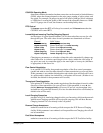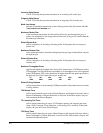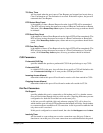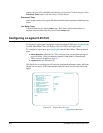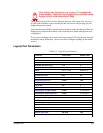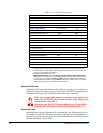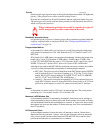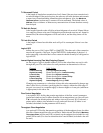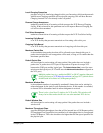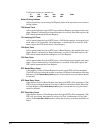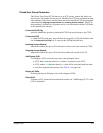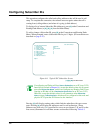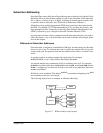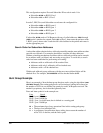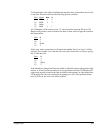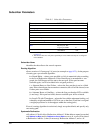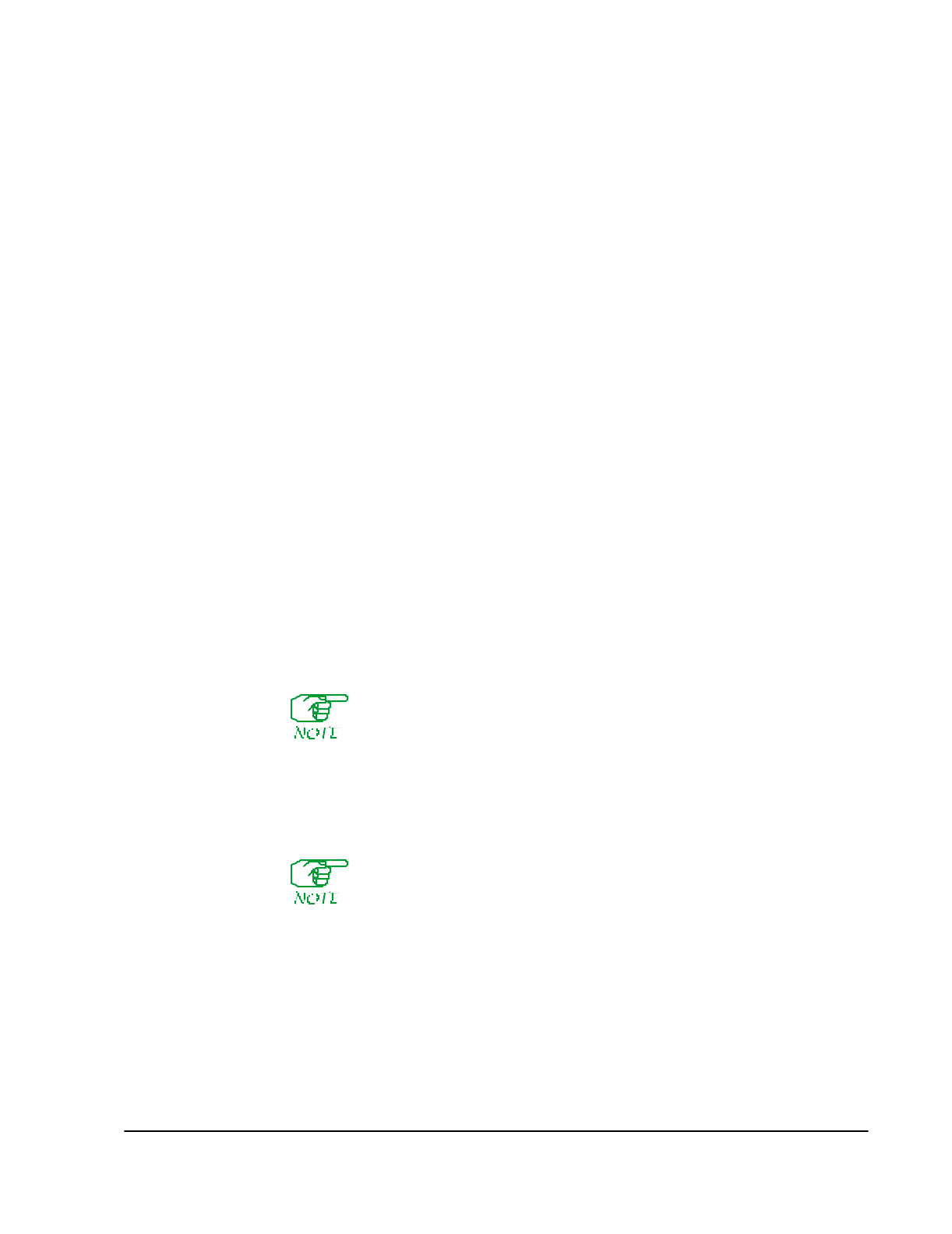
Configuring X.25 8-17
Local Charging Prevention
prevents calls (if
Y
) from being charged to this port. Incoming calls from the network
with Reverse Charging specified will be rejected; outgoing calls will have Reverse
Charging inserted if it is not already in the call packet.
Reverse Charge Acceptance
authorizes transmission of incoming calls that request the X.25 Reverse Charging
facility. If
N
is selected for this parameter and a call requests Reverse Charging, the
call will not be transmitted.
Fast Select Acceptance
authorizes transmission of incoming calls that request the X.25 Fast Select facility.
Incoming Calls Barred
is an X.25 facility that prevents transmission of incoming calls to this port.
Outgoing Calls Barred
is an X.25 facility that prevents transmission of outgoing calls from this port.
Maximum Packet Size
is the maximum data packet size that will be allowed to pass through this port. A
packet size included in a call setup packet will be used, as long as it is smaller than the
maximum specified here.
Default Packet Size
will be assigned to an incoming call setup packet if the packet does not include a
packet size. A packet size of 512 bytes is imposed on all protocols except X.25
between the PAD port and the logical port. The
Default Packet Size
is used for trans-
mission out the logical port. (X.25 traffic uses the
Maximum Packet Size
configured on
the X.25 port.)
Multiple packet sizes (e.g., multipoint SDLC-to-QLLC) require either mul-
tiple logical ports or X.25 address translation (see page 8-27) (which allows
modification of facilities in Call Request packets).
Maximum Window Size
is the maximum number of sequentially numbered I-frames that can be waiting for
acknowledgment by the (end-to-end) destination device. If this number is exceeded,
no frames will be transmitted until an acknowledgment is received.
There is also a local level-3 window for X.25 traffic. This window will
always be in effect unless the D-bit is set at the attached X.25 device.
Default Window Size
will be assigned to an incoming call setup packet if the packet does not include a
window size.
Maximum Throughput Class
specifies the default throughput class that will be inserted into a Call Request packet
if Throughput Class Negotiation is not enabled or if a throughput class is not requested
in the Call Request. This value should not be higher than the line speed specified for
the physical port.



